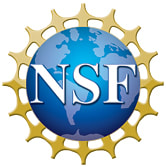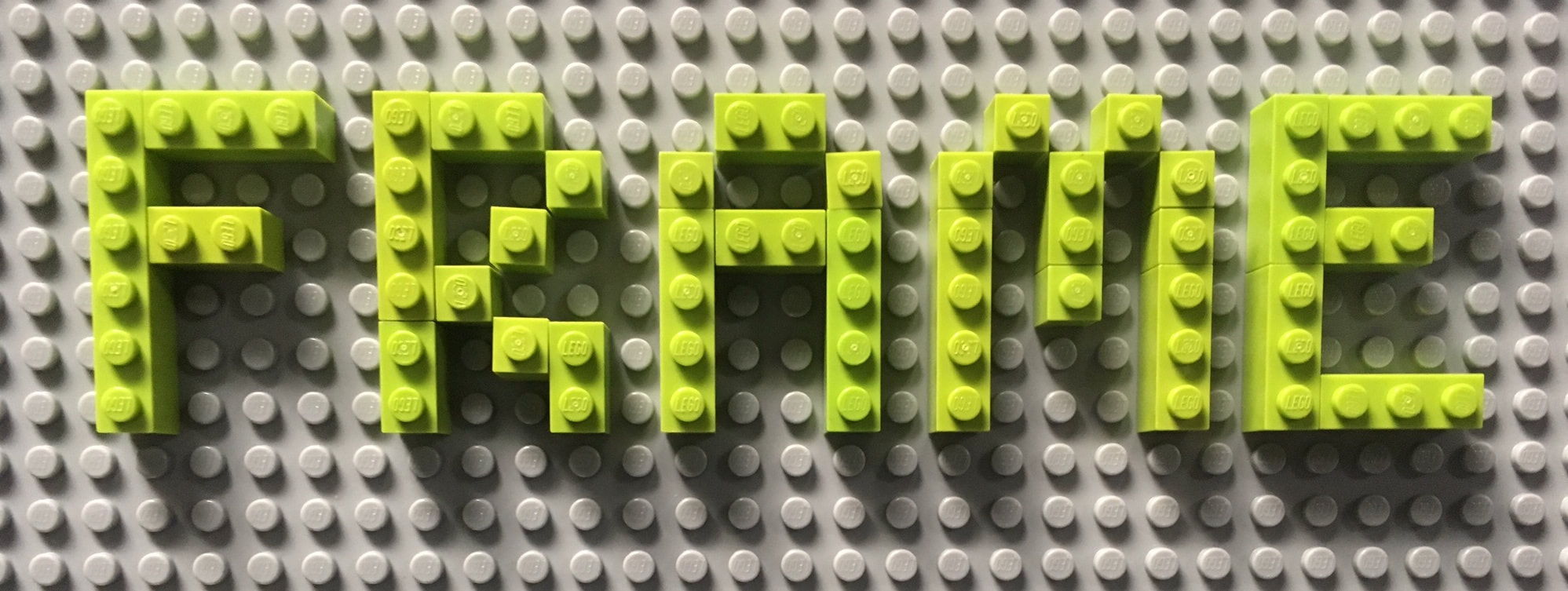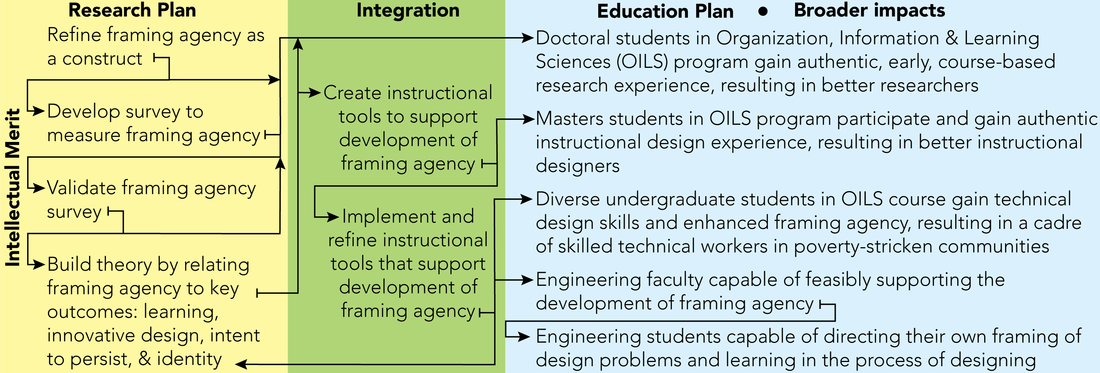Welcome!
In addition to posting publications related to the FRAME project, my NSF CAREER grant research, I intend to document my progress. Inspired by my students' interest in having insight into research process, I hope this will supplement the tidy tales told in our final form publications.
TL/DR version of the abstract
Though they may make many decisions, students seldom get to make decisions that matter. Having framing agency means being able to make such decisions - decisions that lead to new learning through designing. I investigate ways students can develop framing agency, why framing agency matters, and create tools for instructors who want to support their students to develop framing agency.
Abstract
A persistent problem in engineering classrooms is that students don't see value in what they are learning and don't know how to direct their own learning when faced with real-world, open-ended design problems. This problem stems from students' past experiences of predominantly solving problems that have a single correct answer. One reason students have few such opportunities is that faculty lack the constellation of instructional tools needed to feasibly support students to take ownership of open-ended design problems.
The Framing and Reframing Agency in Making and Engineering (FRAME) project investigates the constellation of instructional tools needed to develop students' framing agency—defined as having and taking opportunities to make consequential decisions about a design problem and ways to proceed in learning and developing solutions.
Faculty members are sometimes uncertain why some activities support students to take ownership of core concepts, whereas other activities do not. The construct of framing agency will help clarify critical differences in what—on the surface—appear to be similar learning experiences. The constellation of instructional tools—which are developed, tested and refined across engineering settings at a Hispanic-serving institution—will help faculty to effectively support students to take ownership of their learning. Additionally, the FRAME project is set in a minority-majority state that is blessed with a rich tapestry of cultures. Recent research at UNM has uncovered engineering assets such students bring; the FRAME project will provide new supports for faculty to engage these assets. The findings have relevance for guiding other states whose future demographics are predicted to be similar to New Mexico's.
Research from a number of fields suggests that framing problems may explain outcomes such as learning and the creativity of solutions, but the empirical backing for this remains weak. The FRAME project fills this gap, providing new theory, empirical backing, a validated measurement tool, and research-based instructional tools. Research questions guide this work:
The Framing and Reframing Agency in Making and Engineering (FRAME) project investigates the constellation of instructional tools needed to develop students' framing agency—defined as having and taking opportunities to make consequential decisions about a design problem and ways to proceed in learning and developing solutions.
Faculty members are sometimes uncertain why some activities support students to take ownership of core concepts, whereas other activities do not. The construct of framing agency will help clarify critical differences in what—on the surface—appear to be similar learning experiences. The constellation of instructional tools—which are developed, tested and refined across engineering settings at a Hispanic-serving institution—will help faculty to effectively support students to take ownership of their learning. Additionally, the FRAME project is set in a minority-majority state that is blessed with a rich tapestry of cultures. Recent research at UNM has uncovered engineering assets such students bring; the FRAME project will provide new supports for faculty to engage these assets. The findings have relevance for guiding other states whose future demographics are predicted to be similar to New Mexico's.
Research from a number of fields suggests that framing problems may explain outcomes such as learning and the creativity of solutions, but the empirical backing for this remains weak. The FRAME project fills this gap, providing new theory, empirical backing, a validated measurement tool, and research-based instructional tools. Research questions guide this work:
- How and when do students make decisions that are consequential to their designing and learning?
- What resources support students to frame problems? (3) To what extent does framing agency explain variance in key outcomes, such as intent to persist in engineering, professional engineering identity development, relevant learning, and innovative design?
I also blog (occasionally) about making and designing work that directly inspired the FRAME project on the OILS Learning Lab site: Making Space
My research as part of the FACETS project may be found here.
More information about the National Science Foundation (NSF) Faculty Early Career Development Program: (CAREER)
My research as part of the FACETS project may be found here.
More information about the National Science Foundation (NSF) Faculty Early Career Development Program: (CAREER)

This material is based upon work supported by the National Science Foundation under Grant No. EEC 1751369. Any opinions, findings, and conclusions or recommendations expressed in this material are those of the authors and do not necessarily reflect the views of the National Science Foundation.

